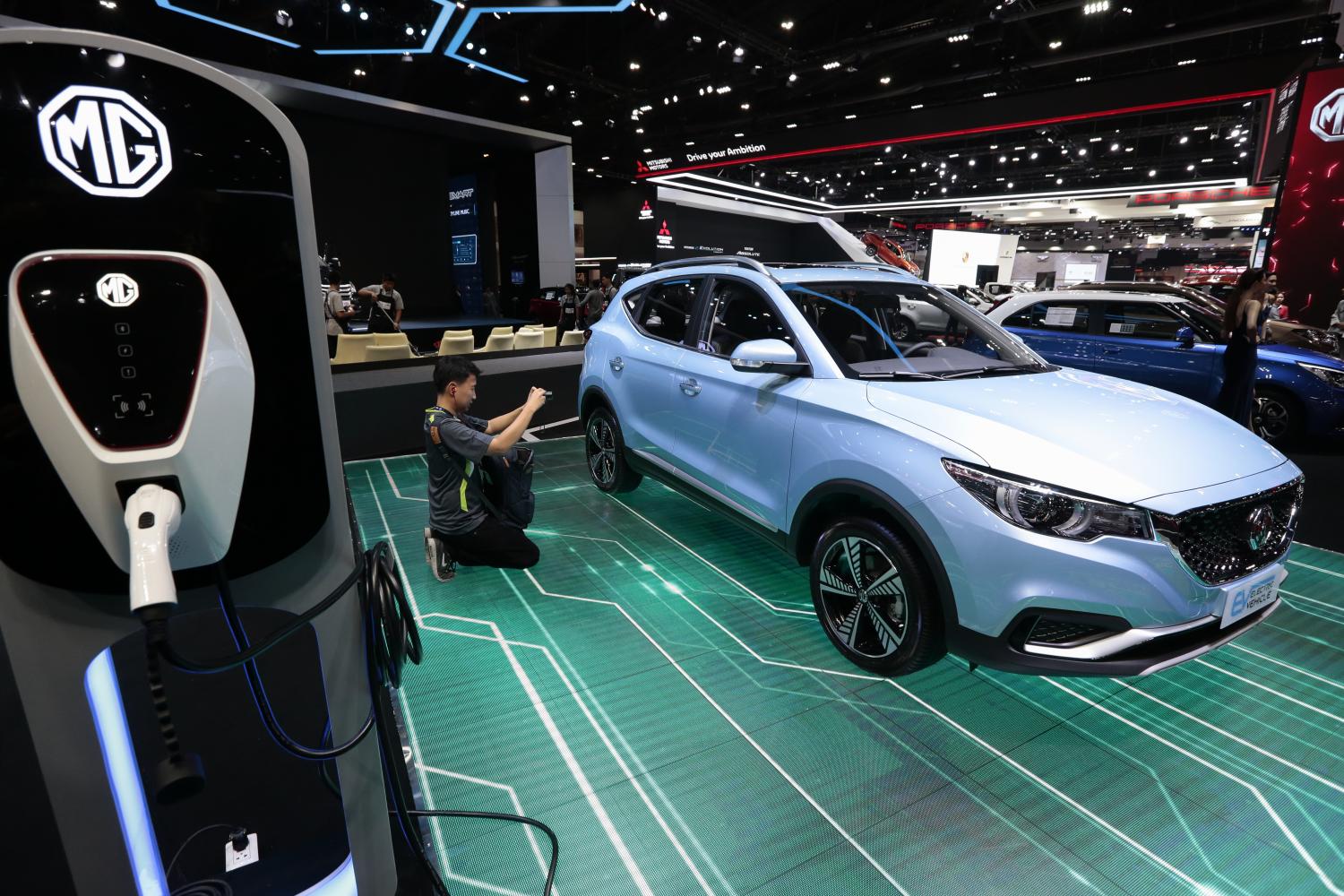
Thai-Chinese carmaker SAIC Motor-CP has committed to investing in assembly production for two versions of electric vehicles (EVs) -- plug-in hybrids and battery EVs -- at its facility in Chon Buri, even though all China-made EVs are now imported without tariffs under the Asean-China free trade agreement.
With this agreement, there is no incentive for Chinese manufacturers to invest in EV production in Southeast Asia, including Thailand.
Pongsak Lertruedeewattanavong, vice-president of MG Sales Thailand, SAIC Motor-CP's local subsidiary, said the parent firm submitted its application for battery EVs to the Board of Investment (BoI) after the 1.36-billion-baht application for plug-in hybrid EVs was granted BoI privileges last September.
Mr Pongsak refused to divulge the investment value for the battery EV project because it is being considered by the BoI.
"Both EV versions will be assembled here, for completely knocked-down cars as well as right-hand-drive EVs in Southeast Asia," he said.
SAIC Motor-CP is a joint venture between Thai conglomerate CP Group and Shanghai-based SAIC Motor Corporation. The car assembly plant operates at WHA Seaboard Industrial Estate 2 with an annual capacity of 100,000 units.
Since 2009, SAIC Motor has produced EVs to be sold in China only, with one hybrid EV, five plug-in hybrid EVs and four battery EVs. As of 2018, it has sold 200,000 EVs across the country.
Mr Pongsak said the parent firm plans to allocate half of its annual capacity to make new EVs under the two BoI projects over the long run.
SAIC Motor-CP will introduce the new MG ZS EV to be sold locally on June 20, priced below 1.5 million baht, he said.
Mr Pongsak said the ZS EV is the imported model from China with 0% custom duty, so SAIC Motor-CP is very confident that the model will be competitive in Thailand, even with the high price tag.
This model enjoys an excise tax of 8%. Once SAIC Motor-CP assembles the battery EVs locally, the cars will be subjected to a 0% excise tax during 2020-22 due to the government's short-term incentives to encourage local buyers, then the tax will rise to 2% from 2023 onward.
The ZS EV was displayed at the Bangkok International Motor Show in March, but it did not take bookings.
SAIC Motor-CP plans to install EV charging stations at 107 showrooms and services centres nationwide to support the sales of EVs in the future.
With the two BoI applications, SAIC Motor-CP has withdrawn itself from the government's eco-car scheme because there is no potential opportunity to produce this vehicles in a long run, according to Mr Pongsak.
This is the last year for eco-car applicants to begin production in Thailand.
SAIC Motor-CP was also an applicant for the BoI's eco-car scheme in 2014. Privileges were granted in November 2014 to make 110,000 eco-cars a year, worth 7.6 billion baht.
SAIC Motor-CP is the third car company, following General Motors and Ford, to leave the scheme.
In 2019, MG Sales Thailand is confident local purchases of MG cars can be doubled to 50,000, new EVs sales will be included in this target.
The company posted 6,184 cars sold during January to March, up by 8.1%.
The company set the aggressive target after posting record sales of 23,740 Thai-made vehicles in 2018, a sharp increase of 97.6% from a year before.